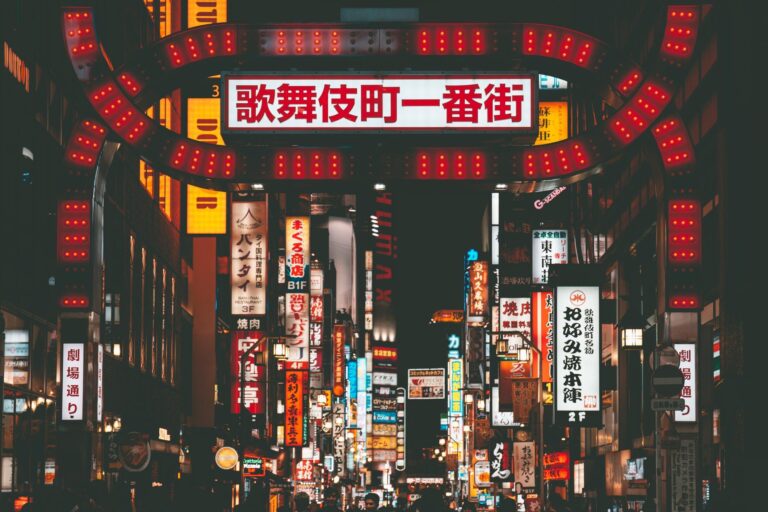Tokyo – Japanese authorities have launched a major crackdown on illicit activities in the country’s notorious red-light districts, aiming to dismantle organized crime networks and enforce stricter regulations. The operation, spotlighted in a recent CNN report, marks one of the most extensive government efforts in years to curb illegal prostitution, human trafficking, and related offenses in urban entertainment hubs. This intensified law enforcement campaign sheds new light on the challenges facing Japan’s nightlife industry amid evolving social attitudes and legal frameworks.
Crackdown Targets Illegal Activities in Tokyo’s Red-Light District
Authorities have intensified their efforts to clamp down on a range of unlawful practices in one of Tokyo’s most notorious entertainment areas. Recent raids have targeted establishments suspected of harboring illegal prostitution rings, unlicensed businesses, and exploitative labor conditions. Law enforcement officials reported the confiscation of illicit paraphernalia and the detention of several individuals allegedly involved in organized crime networks operating behind the district’s vibrant nightlife.
Key measures implemented during the crackdown include:
- Stringent background checks on business owners and employees
- Increased police patrols during late hours to deter illegal activities
- Collaboration with local civic groups to raise public awareness
| Activity | Enforcement Status | Recent Outcome |
|---|---|---|
| Illegal Prostitution | Under surveillance | 15 arrests made |
| Unlicensed Businesses | Raided | 7 shutdowns enforced |
| Labor Violations | Investigated | Fines issued |
Impact on Local Communities and Businesses Raises Concerns
The recent law enforcement efforts targeting Japan’s red-light district have sparked unease among local residents and business owners. Many fear that the crackdown, while intended to address illegal activities, risks destabilizing the community’s fragile economic balance. Small establishments that rely indirectly on the district’s foot traffic report sharp declines in customers, threatening their survival. Additionally, some community leaders argue the measures disproportionately affect vulnerable workers without providing sufficient social support or rehabilitation alternatives.
Key concerns expressed include:
- Loss of livelihood for entertainers and service staff
- Reduced revenue for adjacent businesses such as restaurants and retail shops
- Potential rise in underground, unregulated activity as operations move out of public view
| Stakeholder | Impact | Proposed Solution |
|---|---|---|
| Local Business Owners | Revenue drop 30-50% | Financial assistance programs |
| Community Residents | Increased tensions | Improved policing and mediation |
| Workers in District | Job insecurity | Vocational training initiatives |
Experts Call for Balanced Policies Combining Enforcement and Support Services
Policy experts emphasize that addressing the complexities of Japan’s red-light district requires more than just stringent law enforcement. While arrests and raids have surged in recent months, many argue that a holistic approach involving social support services is essential to create lasting change. Specialists urge integrating rehabilitation programs, mental health counseling, and job training opportunities to assist individuals seeking to leave the industry voluntarily, thereby reducing recidivism and exploitation.
Community organizations and government agencies are increasingly calling for enhanced collaboration to balance suppression efforts with compassionate outreach. Key recommendations include:
- Establishing resource centers offering legal aid and healthcare consultation
- Implementing educational workshops tailored for vulnerable populations
- Creating safe shelters for trafficking survivors and those escaping coercion
| Support Service | Description | Impact |
|---|---|---|
| Job Training | Skill-building programs for alternative employment | High – promotes economic independence |
| Mental Health | Counseling and trauma therapy | Moderate – addresses psychological barriers |
| Legal Aid | Assistance navigating the justice system | High – protects rights and prevents abuse |
Key Takeaways
As Japan intensifies its crackdown on the red-light district, authorities signal a broader effort to address underlying issues of illegal activities and human trafficking. While the impact on local businesses and communities remains a subject of debate, the government maintains that these measures are essential for restoring public order and safety. The situation continues to develop, with both domestic and international observers closely monitoring the outcomes of the crackdown.




